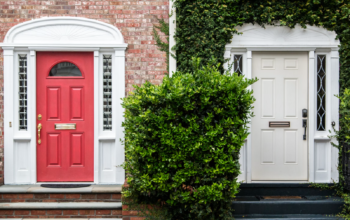Disclosure: As an Amazon Associate I earn from qualifying purchases. This page may contain affiliate links, which means I may receive a commission if you click a link and purchase something that I have recommended. There is no additional cost to you whatsoever.
Abuja, Nigeria: It’s official– President Trump has left the White House. The buildup to his exit was a huge rollercoaster of events, one of the most notable being his unceremonious exit from Twitter. Almost everyone is familiar with the circumstances surrounding Trump’s Twitter ban. In the aftermath of that, a lot has been said about the power of social media and big tech companies to censor individuals on their platforms.
While Trump’s ban is an interesting issue to discuss, perhaps even tweet about, it is a largely jurisprudential conversation for me. What Trump can or cannot tweet is an American issue (even though in typical manner, they have imposed it on the rest of the world). What concerns me is the potential fallout for freedom of speech in my part of the world.
One of the major reasons for the growth and global adoption of social media platforms such as Facebook and Twitter is their presentation of unique opportunities for communication not censored or controlled by world governments. This is especially important for developing nations where censorship is rampant and traditional media are often tools of propaganda. For those social media companies to now engage in censorship is deeply disturbing. Censoring a dissenting opinion because the government disagrees with the opinion or finds it offensive is a slippery slope.
Related Post: 10 Best Political Podcasts to Keep You Informed About US Politics

A lot of people, usually because of their political inclinations, make this issue about Trump. I believe this is short-sighted because it is easy to think that Trump’s position was unique. It is easy to justify and say Trump was the bad guy and therefore had it coming. So what if it happens to you. What if you are the victim this time. What if it is an issue you care about? Where do we draw the line?
Let’s say there is yet another police shooting in the US and a young black man has been killed. In typical fashion, the Attorney-General’s office begins an investigation which will inevitably lead to the officers going scot-free and the shooting being justified. Would this mean that activists can’t insist there was a murder if the AG’s office have said there wasn’t? Since when did the word of a government agency become the only acceptable narrative?
Now let’s take a moment to imagine America’s political future. What if Biden loses to Trump in 2024? Would you support that Biden be censored if he insists that the elections were flawed? What happens if you become the next victim of this censorship? If Twitter can effectively silence the democratically-elected president of the most powerful nation in the world, clearly no-one, no matter how wealthy and powerful, is above censorship.
The answers to these questions have been worrisome and have greatly emphasised the need for world governments to exercise more control over social media. For most developed countries, that might turn out to be a good thing. For citizens of developing nations however, this move presents a real problem. Most of our democratic governments when unmasked are essentially dictatorial regimes and they have been seeking ways to silence the masses for far too long. This Twitter ban has given them an excuse, a cop-out.

For instance, in Uganda, in the lead up to the country’s general elections on January 14 and in the wake of Trump’s Twitter ban, the government shut down social media platforms. Yoweri Museveni, who has ruled Uganda since 1986 in his address on the ban stated that, “We cannot tolerate this arrogance of anybody coming to decide for us who is good and who is bad.” While Facebook didn’t immediately respond to the Ugandan President’s decision to shut down social media ahead of the election, Twitter’s response was to “… strongly condemn Internet shutdowns – they are hugely harmful, violate basic human rights and the principles of the #OpenInternet.” The irony.
The world has evolved and we are doing our best to create a more empathetic world. We want the internet and social media and the conversations therein to be civil. By this very desire, we can all agree that there is a rapidly rising need for censorship; the million dollar question though is who is independent and unbiased enough to do the job?
A few years ago, the obvious answer here might have been the big tech platforms themselves but in light of these recent events, I think not. These platforms draw up their own rules on censorship, based on biases, prejudices and pressures, and enforce the rules as they see fit. If this is not concerning, then I don’t know what is. The entire argument against dictators has always been; you can’t silence people because they are your opposition, even if you don’t like what they are saying. Fanning the flames of censorship only signals a double standard that says do what we say but not what we do.
In addition, in the last few years, social media platforms like Twitter and Facebook have turned to what can be considered a public square. Proof of this can be found in the fact that former US president Trump routinely communicated directly with the American people through the platform. Therefore it is reasonable to expect that any regulation of speech on these platforms should be an issue for the public institutions and not private individuals.
As I explained earlier though, a lot of people in developing countries know firsthand how disastrous government tech censorship can be. We do not trust our leaders for very good reasons. We don’t believe they have our interest at heart and we most certainly do not trust them to make decisions on who and how one should be heard or deplatformed.
Who then should hold the keys of media and big tech censorship? Unfortunately, I do not have the answers myself and maybe that’s okay because no one man should and perhaps, that is the whole point. In the quest for an answer to this question, I think it’s crucial to remember that if we expect others to let us express ourselves as we please, then we too must leave them alone to express themselves as they please. Especially when our positions differ.
When it becomes permissible to restrict the actions, words, and thoughts of one group of people, it’s only a matter of time before opportunities to target other groups in society are created as well. The quote by Evelyn Beatrice Hall “I may disapprove of what you say, but I will defend to the death your right to say it” is a popular reflection of the ideals of the French philosopher Voltaire.
Isn’t it time for us to adopt similar ideals ourselves?
Recommending reading:
Cover image via Twitter.










